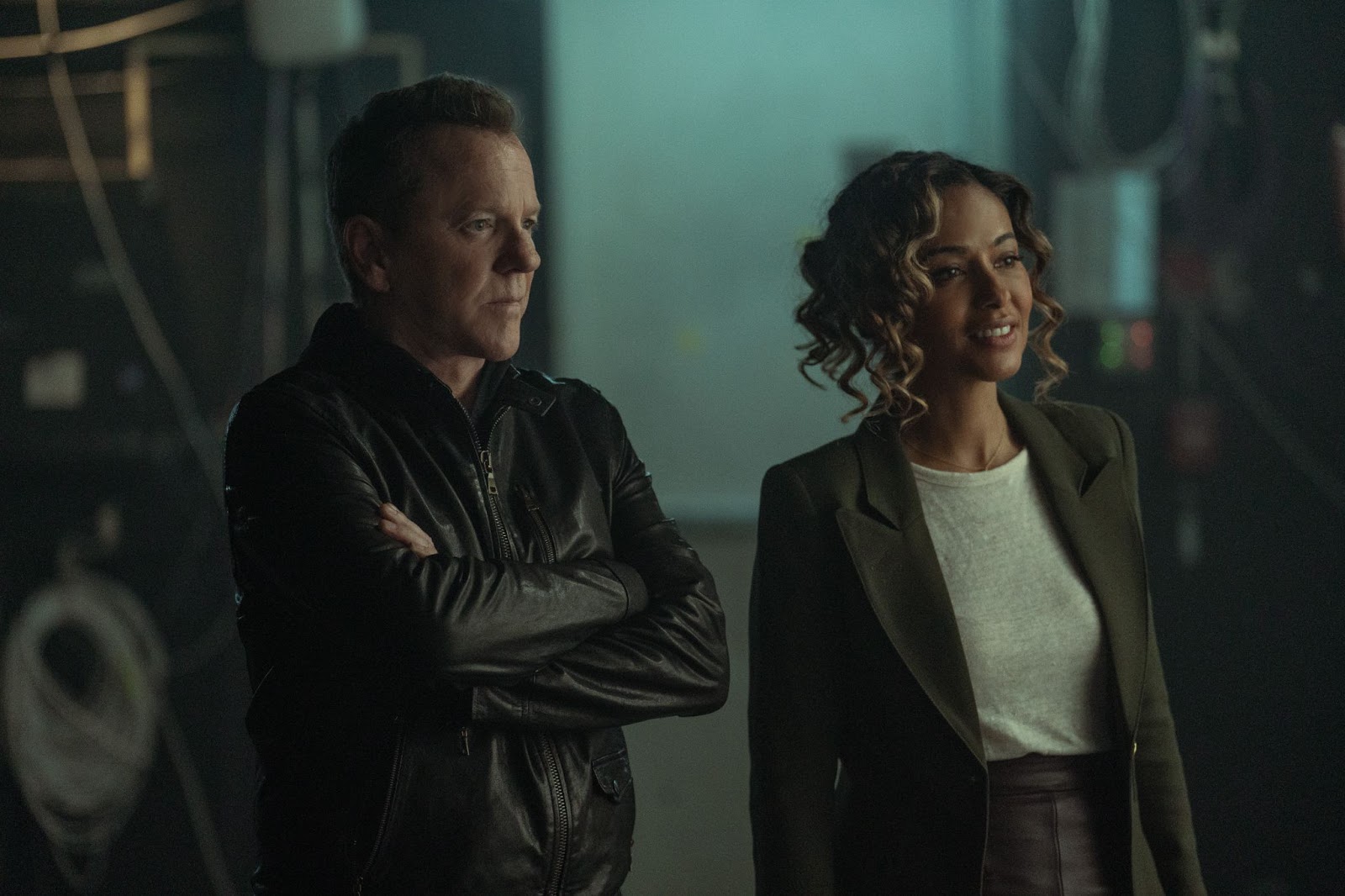Rabbit Hole is streaming on Paramount+.
By Greg Wheeler
We live in a time where data is money. Specifically, big data. With recent rumblings claiming that social media influence has been instrumental in swinging election votes, Rabbit Hole picks up that thread, crosses paths with action thriller 24, and absolutely runs with it.
Starring Kiefer Sutherland in the main role, Rabbit Hole is a fitting title for this series, which sees Sutherland tumble down the proverbial rabbit hole into a world of conspiracies, half-truths and big data being used to manipulate the masses. Paramount’s original is not just a twisty-turny thriller, it’s also a thought provoking and eye-opening assessment of just where we are as a society right now.
The story centers on John Weir, a private espionage operative who finds himself in the battle of his life as he works to preserve democracy as everything he ever knew is thrown into disarray. It’s hard to explain the main plot here without diving into spoiler territory but the gist sees John framed for the death of an influential senator called Edward Homm.
Returning to his office, John’s building is blown up, killing his entire team, while an impending Shared Data Act is trying to be passed in Congress, allowing private companies to access millions of people’s personal data. There’s someone at the top of all this, orchestrating everything, but can John actually trust anyone in his life? And can he stop the US from slipping into becoming a controlled dictatorship?
Each of the eight episodes work well to develop the mystery and keep you guessing to find out what happens next. In fact, there are a whole range of different red herrings, shocking twists, fake-outs and more.
While the overarching narrative is good and features some solid ideas, unfortunately basic plot logic and contrivances creep in after around episode four and they don’t stop. While watching each chapter, it’s easy to get sucked in and ignore these, but on reflection they’re glaring issues that feel incredibly sloppy.
One such instance sees us establish early on that John Weir is a wanted man. He’s on the FBI’s top list of men to track down and bring into custody. In order to obtain crucial intel, John decides to pose as an FBI agent, with a fake badge and a planted distraction to sneak in, sit at an open desk in front of everyone, hack into another agent’s desk, retrieve information, print it, and then leave out the front door. And all without being spotted by a single agent.
As an isolated incident you could perhaps make an exception for this but the problem happens constantly. In fact, a few episodes later, our antagonist receives a message alert, pinging when it recognizes John Weir’s face in public, who has to try and avoid security guards who recognize him with sunglasses and a hat on. And then we return to the status quo again.
The characters themselves are a bit of a mixed bag. There’s some excellent acting in here and some pretty memorable players, but similarly some of the supporting cast are pretty poor and fail to stand out. The Intern, Jo Madi and several others feel like archetypal players, while Kiefer, Charles Dance and Rob Yang easily shine.
Rabbit Hole does well with its overarching narrative, delivering a compelling and intriguing story that ignites questions about Big Data and manipulation. Unfortunately, at a granular level this one is a bit of a mess.
Taking a step back and examining the entire series that way, looking at the events that lead to the conclusion, makes for rather dour reading. It’s a shame because I want to love this series but critically, this one is certainly far from perfect. Still, it’s certainly intriguing to see how far this rabbit hole goes and that’ll be enough to watch this until the end.
I give Rabbit Hole a B-.

